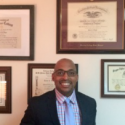Many of you know that I do residential landlord-tenant law. At its heart, this area is about owners v. renters. Usually, though not always, the owners are wealthier than the tenants. I was thinking about this the other day, and I was thinking about wealth, generally, you know the age-old maxim: “the haves v. the have-nots.” As I was pondering, I was not attempting to cast aspersions on any one group or “class” of people, not attempting to discover if luck, industry or inheritance played a role in one’s lot in life. I was just reflecting on our great nation and wondering about the principles of wealth.
Lately, there has been a lot of focus on wealth, with all the talk about the ever-shrinking middle class, the ever-growing wealth accumulation of the 1% and, of course, the extremely differing political views out now seeming to favor one side or another, and which seem to collide into a din of dissonance.
Now, admittedly, I am no economist, and don’t wish to get super scientific about it all. It just got me to thinking about property and wealth, and, more especially, our Anglo-American legal heritage as Americans.
First, a little background on me: I come from a working class background. Sure, my family as a kid always had a decent-enough car, and we had a house with a garage, and always a cat or two (though I wanted a dog), and great neighbors all around who prided themselves on who had the best lawn or the freshest coat of paint, but my parents worked hard to pull it all off. No, I was not poor, at least not as measured from the prism of working class folks, but I did grow up appreciating blue-collar labor. As for me personally, I have long considered myself a working class fellow, one who is unafraid to roll up his sleeves and get dirty (though I have always enjoyed donning a suit and tie), but this doesn’t mean that I do not have pecuniary aspirations.
Still, what about this thing called wealth. In thinking about our Anglo-American legal heritage, I am first reminded of what I learned in property class years ago: a bunch of twigs, scattered naturally about, is just a bunch of twigs, it would seem. No one has any claim on them. Yet, as soon as a person comes along and takes those sticks from here and from over there and bundles them together, they have, by so doing, created something different. They have, through their own labor and industry, made that bundle of sticks worth more than what it was when it was merely scattered twigs (If you value this sort of thing). They now have a proprietary interest in that bundle of sticks. They have a claim on it.
This principle lies at the heart of property law. I made this; it’s mine. (Contrariwise, one might argue that what nature gives to us, it gives to us all, or, that we have finite resources, so “first in right” is wrong, and one group or one generation cannot claim everything by virtue of this principle–or any other) Still, in our heritage, it seems we have always respected the belief that, “if I made it or assembled it or created value in it, then it’s mine.”
So, let us ponder wealth and the form it takes in society for a moment. In terms of our own legal system, much of our legal philosophy comes from the British system of laws. What is different, however, is that we Americans have always prided ourselves on being a land where wealth acquisition was a very real possibility for anyone, no matter your lot in life. (For the purposes of this blog, I am leaving alone the systematic barriers that our nation has put up for various groups of people in trying to realize this dream.) Basically, we have always believed that the next Horatio Alger story is right around the corner. In short, ask an American what primogeniture means, and we’ll look at you sideways.
The Anglo feudal system, which gave birth to much of system, was somewhat different, then. It was a system of status. It had little to do, historically, with one’s talents or even with individual wealth. In a feudal system, your wealth is because of your station in life. Inherent in such a status system, is the belief that one knows one’s limitations. For example, one knows he cannot be a barrister, but can only be a solicitor, simply because of who his parents were. Historically, folks in this system did not have to shoulder the psychological guilt for not acquiring a certain station; their job was solely to do their duty in the station they inherited.
I wonder sometimes if what we hear in the din of political punditry is not really about what kind of people we want to be, what kind of system we wish to further. Is it that we want to sacrifice the complexities of capitalism with for the psychological security of predetermined status? Or is it that we fear that the trend of wealth acquisition is a behemoth which makes more rigid one’s station in life and more impervious the wall between one “class” and another? If your father put together the twigs, aren’t they yours? Would you want to live in a world where they weren’t? Should one be allowed to get more twigs than you because his dad got the twigs for him than yours did for you? Should there be a twig gathering limit? Should everyone have twigs?
I am not pretending to answer these questions, but I am enjoying hearing the noise from those doing so.

